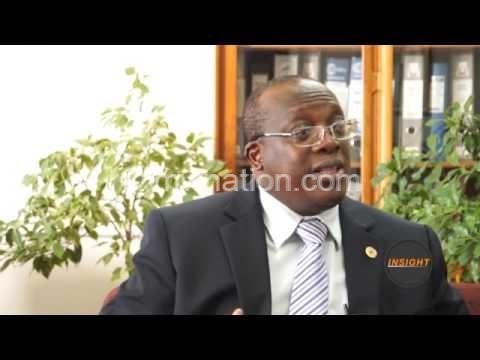‘We should not celebrate corrupt people’
Poor governance is a major driver of socio-economic inequality in Africa. Corruption in government continues to slow development while eroding trust and weakening the accountability of public institutions. Against this backdrop, it is not surprising that corruption has been very high on the African Union (AU) agenda this year. Our reporter JACOB NANKHONYA caught up with AU regional delegate in Southern Africa Dr. Augustine Ngomo to explain more about the agenda and expound on the recent calls being made for United Africa:

Why is fighting corruption the theme for this year’s Africa Day?
Around 2009, corruption was phenomenon but its upsurge in 2015 from across the continent has been disrupting development. About $15 billion is being misused and the money that was coming out is more than that which was receive from donors and development partners. Seventy-five million people are involved in this malpractice. So we chose this theme because we want to curb this. It is affecting our continent so badly. Suffice to say that the money we are accounting for as being lost through corruption was discovered from financial transactions but we are aware that there is even more being lost since other people have to hide the money in their homes and we can’t trace it.
Do you think that the problem can be overcome?
The problem can surely be overcome either completely or just drastically reducing its occurrence. We should not celebrate corrupt people in our societies. We clearly see a person rising from nowhere yet we know his legitimate income can’t support is rising; instead of condemning his corrupt behaviour then we celebrate and feast with them. On the other hand, we should honestly have independent Anti-Corruption Agencies.
We have instruments such as anti-corruption agencies on the continent, why do you think corruption still reins high?
Most of the systems in our governments are not independent. The corruption agencies are formed in a way that they can easily be pulled by economic and political powers. The agencies leadership must not be chosen by the president of the country. It is better we have all three independent agencies in all three regions of Malawi with a head and then they choose one director heading all the agencies’ parts. A special military to protect agencies should also be put in place.
Is corruption the responsibility of government alone?
All of us should develop the culture of zero tolerance to corruption. It should be a conscious of a person to know that this is evil and avoid it. Of course our governments in Africa should play a key role in this. Decomposition of a fish starts from the head, so if the governments tolerate such kind of malpractice then the rest will just follow suit.
African countries fought hard to wriggle themselves from colonisation; do you think independence countries enjoy today can disappear one day?
Being independent is being able to decide our destiny. Our independence can disappear in two ways: one is they can steal our state by having a person who somehow may not respond to the population but the masters behind the curtain. The second way is like what is happening in Somalia and Libya where the country breaks in civil war and the country is uncontrollable.
So what needs to be done to safeguard Africa’s independence?
The only way to make sure that we safeguard this independence is to be together. We can converge as United States of Africa or United Africa—in a way of a confederation or a federation and that is the only way. This will ensure that; for instance, one person starts to spoil things in Gabon then all Africa can correct that. We cannot just stand and stare something happening in Liberia because Liberia will be part of us. In this way, it would be easy to reject influence.
Do you think that the dream of having a United Africa is possible?
The idea of a United Africa is possible though currently we are not going in the right direction. This notion of a United Africa is a political decision but our leaders think that it is better for them to be president in a piece of Africa that a governor in a piece of Africa. They think they will not enjoy the same privileges, advantage and visibility; hence, they push back this idea of a United Africa and make it a far-fetched dream. One time Kwame Nkrumah said that: “If we don’t do now the United States of Africa, after some time the new generation will come and think the national way [am Malawian, Mauritius etc.) and the spirit of United will not be possible.” The agenda of the African Union is to push for Pan-Africanism. We should instil the spirit of Pan-Africanism in the citizens and they push their leaders to think of their agenda about Africa, about Pan-Africanism.
What would be the benefits of having a United Africa?
There are several benefits of having a united Africa some of which are:
- Africa is rich in raw materials and if we can come together it means we have control of our materials and we will industrialise. We will have control of our economy.
- Economically, a United Africa will have the world’s richest population with $244 100 per capita.
- A United Africa would have the first fighting army in the world with 2.5 million active soldiers.
- A united Africa would be the third most populous country in the world (1.2 billion citizens) and no one would dare come and colonise us.
- A United Africa would be the sixth world economy (2513 billion of GDP)
- A United Africa will ensure that its citizens are respected all over the world because they have the whole Africa behind them.
- A United Africa would be free from outside influence. Surely, no one can play with China, USA, European Union because they are a bloc.





